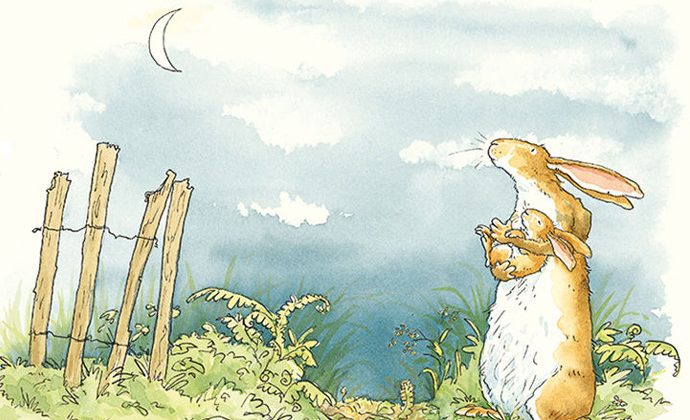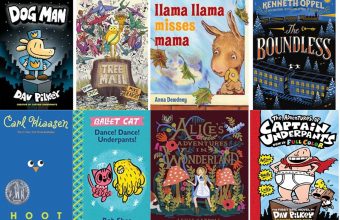Every night, thousands of parents turn the lights off, turn the nightlights on, turn to their children and say the words, ‘I love you to the moon and back.’ It’s lovely.
But, where did it come from? Who invented that phrase? It’s as if all parents have unanimously agreed (Without me! WAH!) to this unwritten rule to start saying this ubiquitous quote from the minute your baby is placed in your arms, for the rest of your life.
Yes, it most definitely has a better ring to it than, ‘I love you to the backyard and back.’ Or, ‘I love you to the nearest intersection and back.’ Or, ‘I love you to the kitchen, where I’m going to get a snack and back.’
I had never heard this phrase uttered in person before, until I heard my son’s father say it (and text it).
Then, of course, there’s Facebook. On any given day, thousands of adults are wishing their spouses a Happy Birthday or Happy Anniversary and ending their tributes of love with the phrase, ‘I love you to the moon and back.’
Because I had never heard it before I met my son’s father, I wondered where it came from, who started it, why parents just know to say this to their children, and was there a parenting class I missed?
As an avid reader and a great proponent of reading to your children, I’m embarrassed, after doing some research, to discover that I’ve never read Guess How Much I Love You by Sam McBratney, the book that originated the phrase. It’s apparently one of the world’s best-loved picture books and an enchanting international bestseller…for decades.
Turns out, it’s quite sweet, and sends chills.
‘I love you up to the moon,’ said Little Nutbrown Hare.
‘Oh, that’s far,’ said Big Nutbrown Hare. ‘That is very far.’ Big Nutbrown Hare settles Little Nutbrown Hare into his bed of leaves.
He leaned over and kissed him goodnight. Then he lay down close by and whispered with a smile, ‘I love you to the moon and back.’
Simple. Yup. Effective. Yup. But, if we’re going to be technical about it (since I do watch The Big Bang Theory and therefore totally consider myself a physicist) what parents are really saying to their offspring is, ‘I love you 768,800 kilometers’. (The distance to the moon and back.)
But, for those of us who suffer from Baby/Mommy Brain, saying, ‘I love you to the moon and back,’ is much easier to remember than saying, ‘I love you 768,800 kilometers!’ which doesn’t exactly roll off the tongue.
Is it too easy just to say, ‘I love you?’ and then to hear, ‘I love you back?’ Well, yes and no. Adding ‘to the moon and back’ does add that extra that extra more-than-you-can-imagine element, even if every single other parent is using it and it’s really not that unique.
I’m not in any way opposed to it, it’s simple, beautiful, and a way of describing a magical love between parents and their children. Besides, it’s much quicker than the ‘I love you’ routine my daughter and I go through.
Me: I love you.’
DD: ‘I love you more.’
Me: ‘I love you the mostest.’
DD: ‘I love you more than the mostest.’
ME: ‘I love you until infinity.’
DD: ‘I love you until infinity times infinity.’
ME: ‘I love you until infinity times infinity times infinity!’
(You see where this is going…or rather not going.)
Love is not something to be measured. How could you really measure love, especially unconditional love? But saying, ‘I love you to the moon and back’, even if it’s not original, is at least succinct.
Do you say, ‘I love you to the moon and back’? Or do you have another more personal way of saying ‘I love you’ to your children? Please share! (And now I’m off to order the book!)
Tagged under: books,picture books,rebecca eckler,I love you to the moon and back,Guess How Much I Love You?,reading to kids






